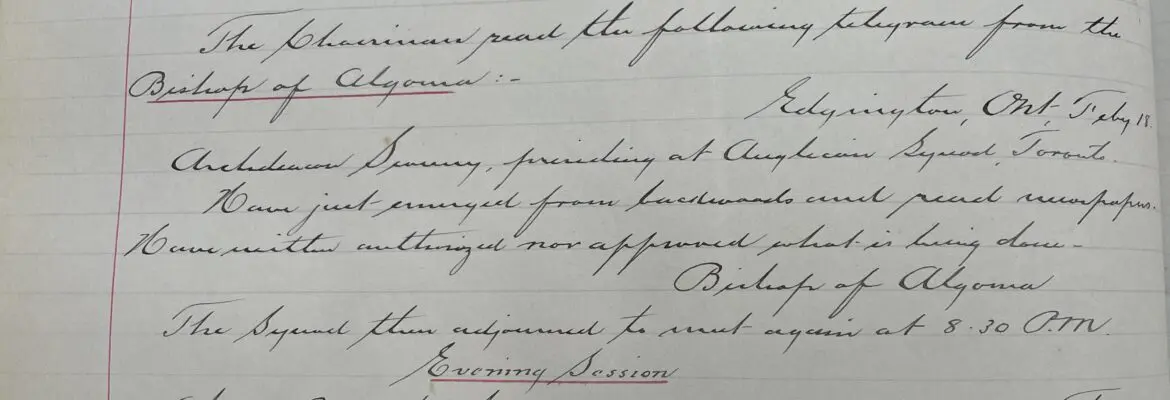
Archives Awareness A-Z
We’re joining the Archives of Ontario in its month-long #ArchivesAtoZ campaign again this year! The aim is to increase the public’s awareness of archives and their collections. We’ll be sharing four posts throughout this month showcasing items from our holdings or providing information about Archives terminology based on each letter of the alphabet.
A – Anglican Congress
August 2023 marked the 60th anniversary of the meeting of the 1963 Anglican Congress, which took place from August 13-23, 1963. The Diocese of Toronto played host to this event, and the Archives holds records related to various organizational sub-committees such as housing and transportation, which involved finding volunteers for driving bishops to and from the airport, as well as providing lodgings. There was also a women’s committee, which planned tours, dinners and teas for the bishops’ wives. On April 12-13, 2024, there will be a conference to mark the 60th Anniversary of the Congress called “MRI at 60,” referencing the Mutual Responsibilities and Interdependence, a document that was issued at the end of the 1963 conference. If you’re attending the conference, be sure to check out the joint display by the General Synod Archives, Diocese of Huron Archives and Diocese of Toronto Archives
B – Baptisms
The earliest baptism recorded in the parish registers held by the Archives took place in 1807. It is recorded in the baptism register of St. James Cathedral, with William Bright being baptized on March 24, 1807. Yet, the Rev. George Okill Stuart, first rector of St. James, performed 167 baptisms between his arrival in July 1800 and January 1807, as found in his reports to the Society for the Propagation of the Gospel. Unfortunately, if there was a register with these baptisms recorded it has been lost or destroyed.
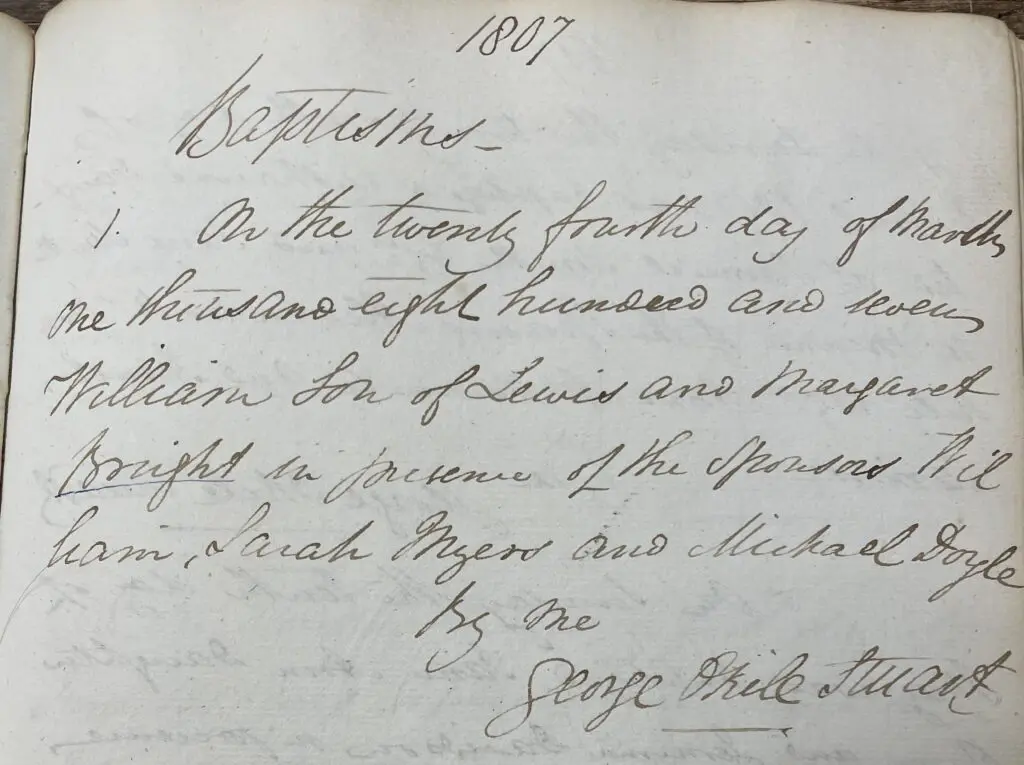
C – Constitutions and Canons
In October 1854, at the third Synod for the Diocese of Toronto, an initial constitution was framed and a declaration affixed to it. At the fourth meeting of Synod in May 1856, the constitution was amended and submitted with a petition to the Legislature to formally enable the members of the United Church of England & Ireland in Canada to meet in Synod. This resulted in An Act to enable the Members of the United Church of England & Ireland in Canada to Meet in Synod. The published Constitution and Canons from 1854 to present are on deposit with the Archives.
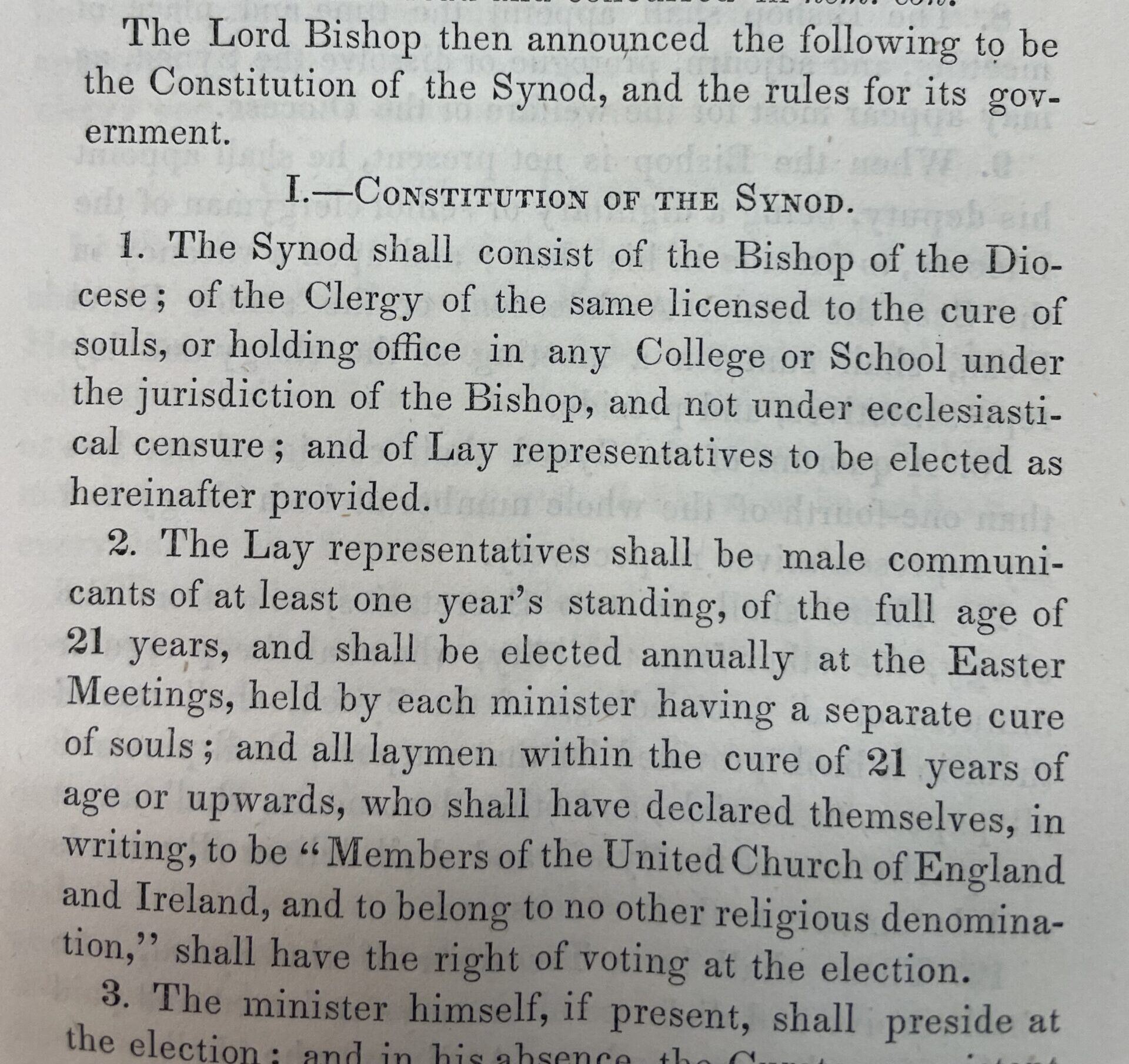
D – Deeds
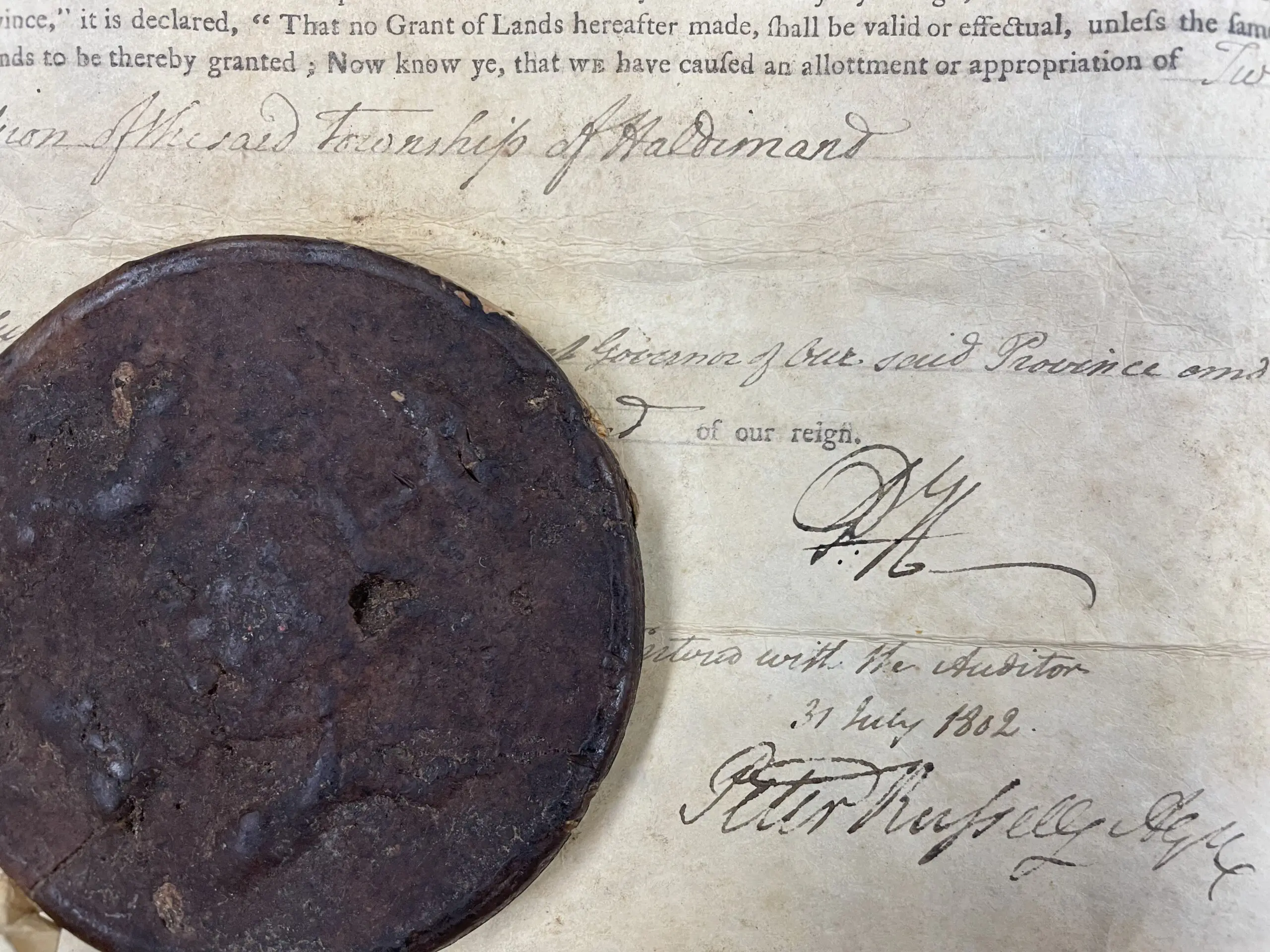
The Archives holds hundreds of deeds of land, including some Crown grants, going back to as early as 1802. The early deeds are visually striking and quite different from the deeds of today: they are often written on velum or parchment paper and are difficult to decipher, as the text was all written by hand. They are too large and fragile to be scanned on our standard flatbed scanner and would benefit from a large-scale digitization project where all historic deeds for properties still owned by the Diocese would be scanned, indexed and made more readily available to diocesan and parish staff.
E – Election
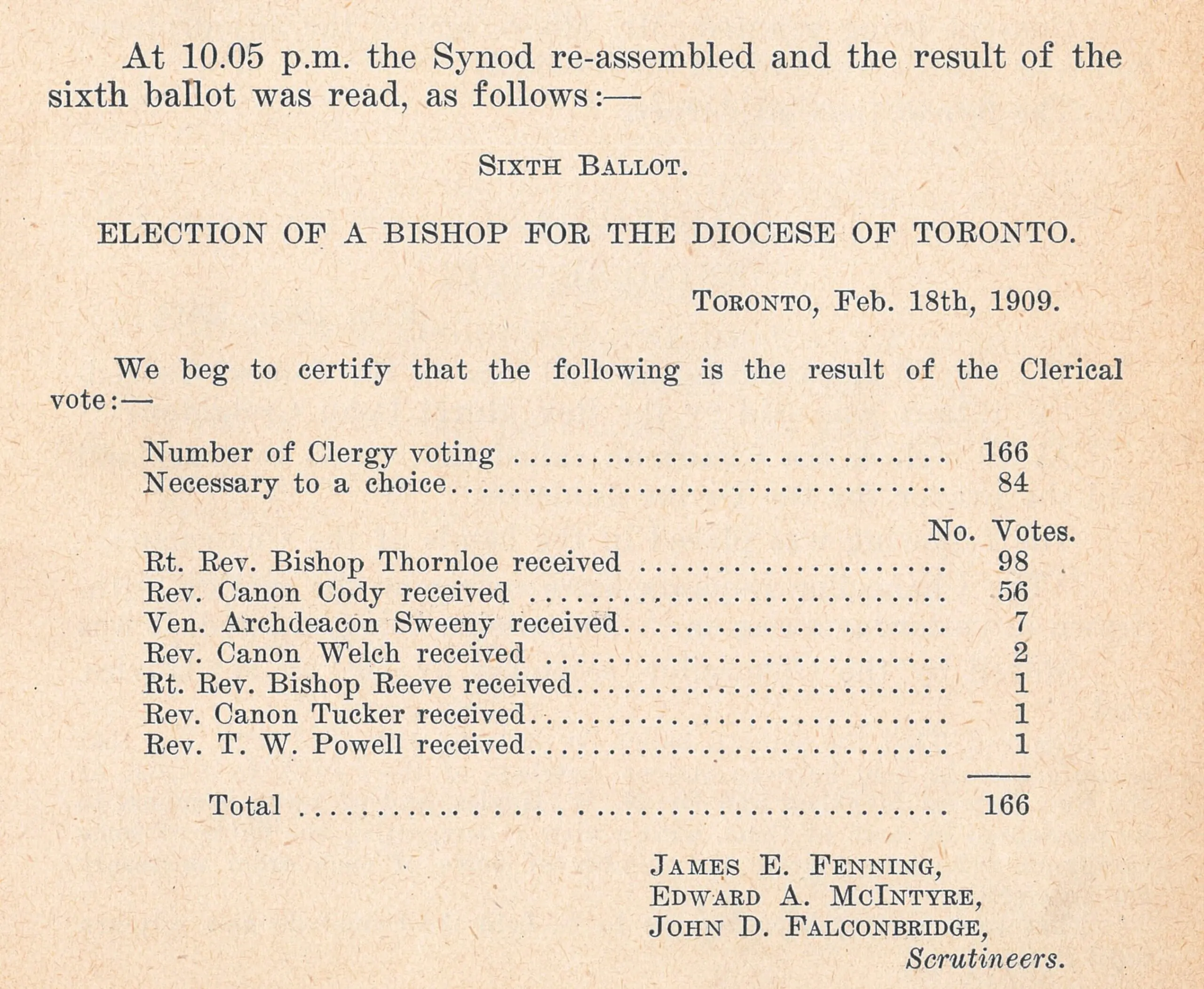
The Synod Journals and handwritten minutes of Synod for the special synods to elect a bishop are part of the Archives collection. These document the election results for the elections of diocesan bishops from Alexander Bethune to Andrew Asbil. One of the most interesting election results was for the election of Bishop Sweeny in 1909. The election took three days and Rev. Sweeny was elected on the 7th ballot. On the 6th ballot, James Sweeney received just 7 clergy votes and 0 lay votes. Shortly before that 6th ballot, a telegram was received from the front runner, the Rt. Rev. Thornloe, Bishop of Algoma. The telegram read as follows: “Have just emerged from backwoods and read newspaper. Have neither authorized or approved what is being done.” Unfortunately, the telegram is not included with the written minutes. The 7th ballot saw Rev. Sweeny elected bishop with 153 clergy votes and 111 lay votes.
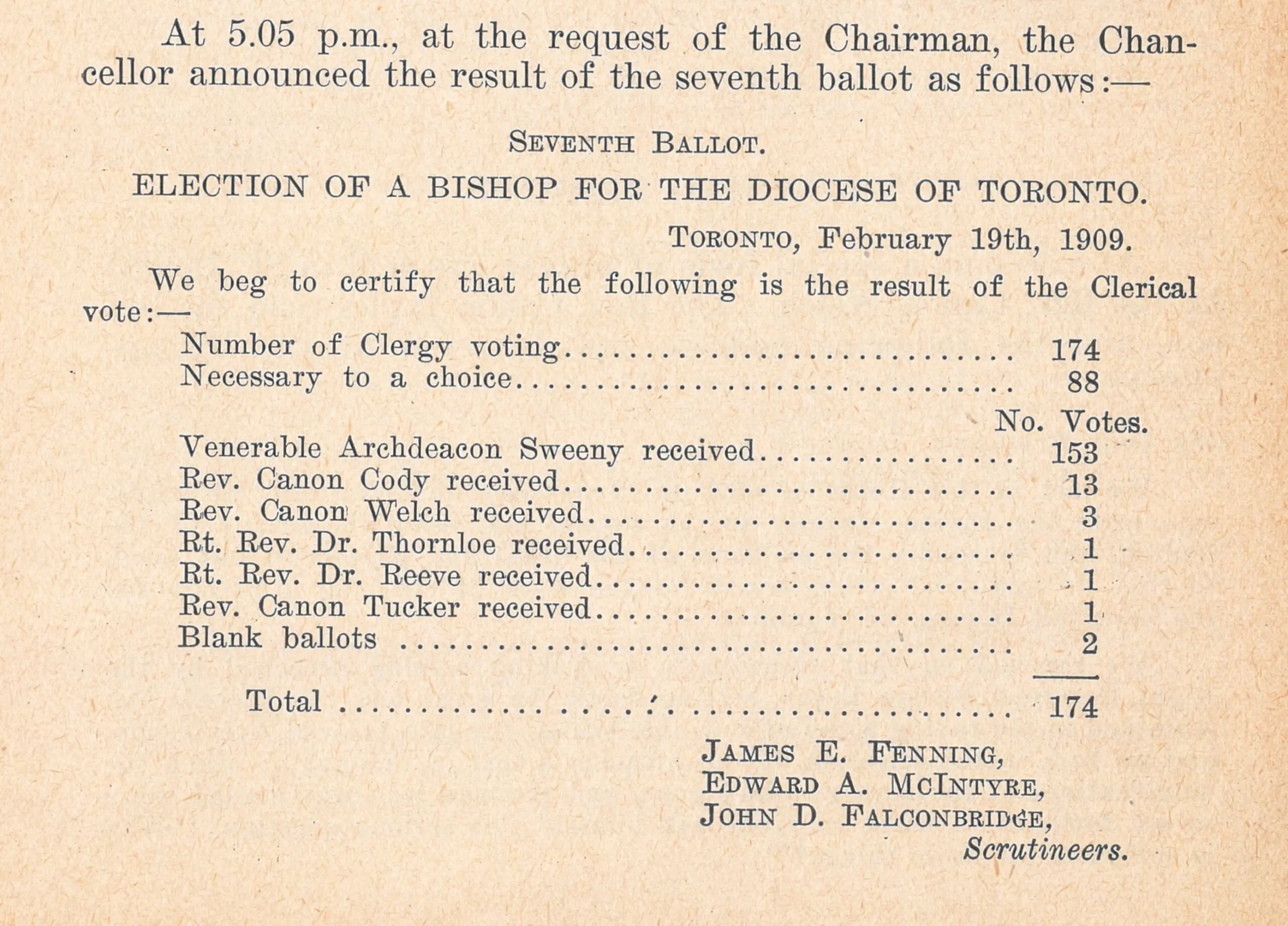
F – Finding Aids
Many archives have created finding aids, which are documents that help provide a summary and list of records received as part of a fonds. However, they can be any document that provides information on an Archives collection. One of our most helpful finding aids is the List of Churches in the Diocese of Toronto established before 1869, which lists the congregations that existed before 1870 by deanery and what years of sacramental records we have on deposit at the Archives. This is helpful to genealogists looking for ancestors born or married prior to the requirement for civil registration in 1869.
G – General Ledgers
The Diocese has general ledgers for the Diocese going back to 1845. Some of the ledgers are very large, measuring 19.5” x 11.5” x 3.5”, and perhaps we should be thankful they are not often requested. However, there are interesting things to be found in these ledgers. The general ledger that begins in 1866 has a page for the Canadian Bank of Commerce, which merged with the Imperial Bank of Commerce in 1961 to become the Canadian Imperial Bank of Commerce (CIBC). This page is headed with the year 1866, yet according to the CIBC website, the Canadian Bank of Commerce was not established until 1867. However, with a little more review it becomes clear that there is a error in the general ledger. The next page is headed July 1886 and has the same opening balance as the balance forward at the bottom of the page headed 1866, which covers April to June.
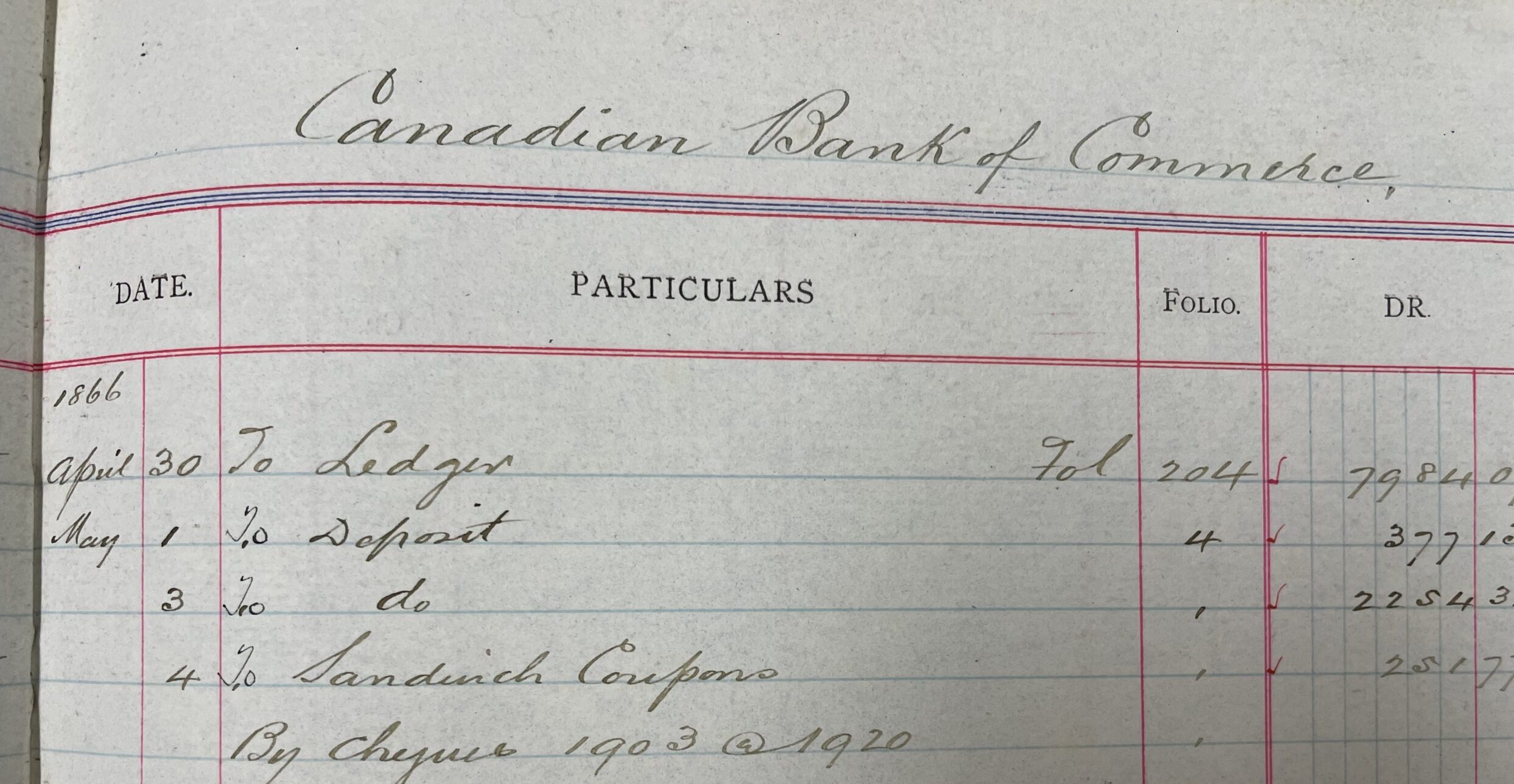
Next week we will share Archives Awareness H to M!